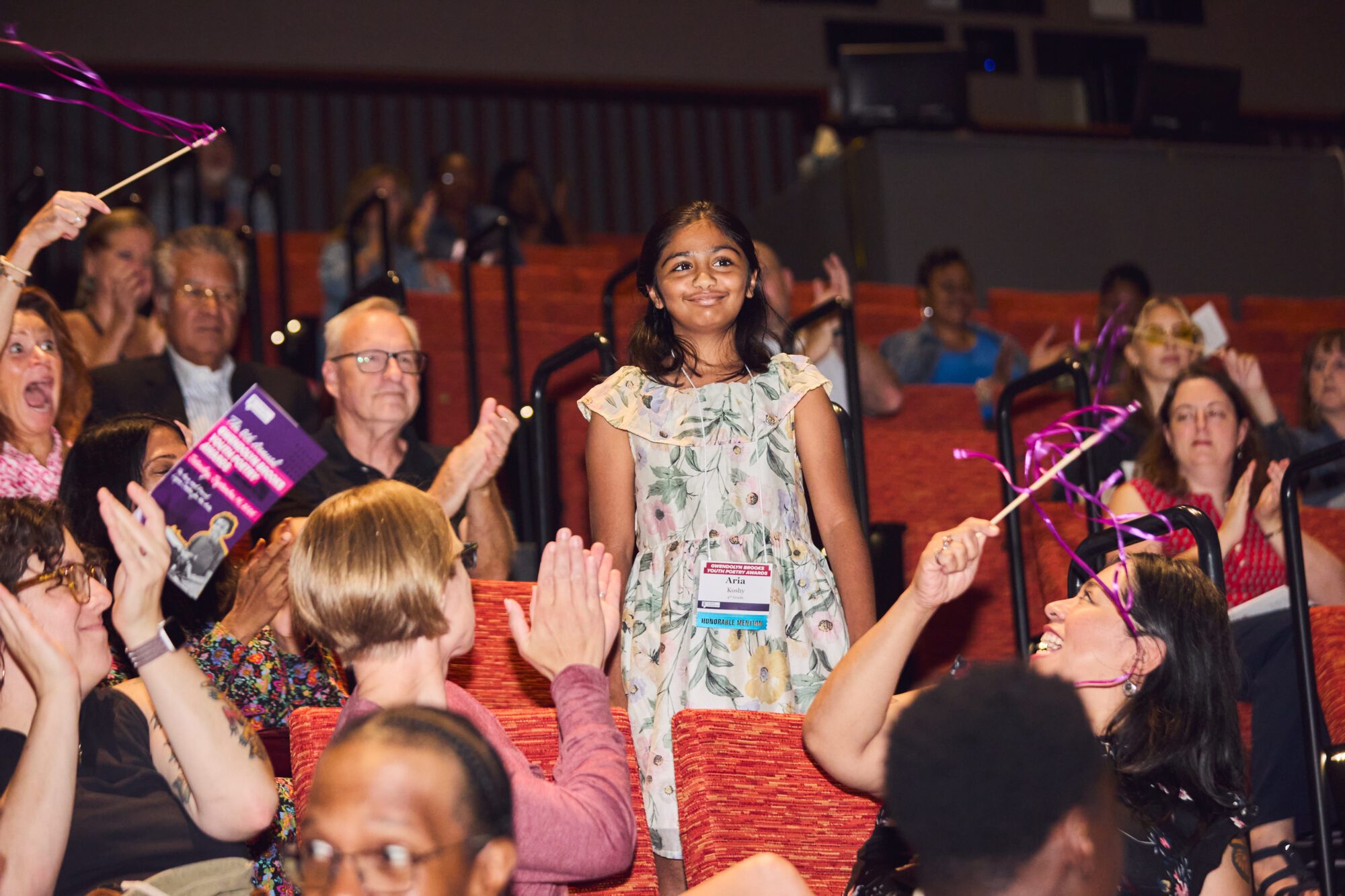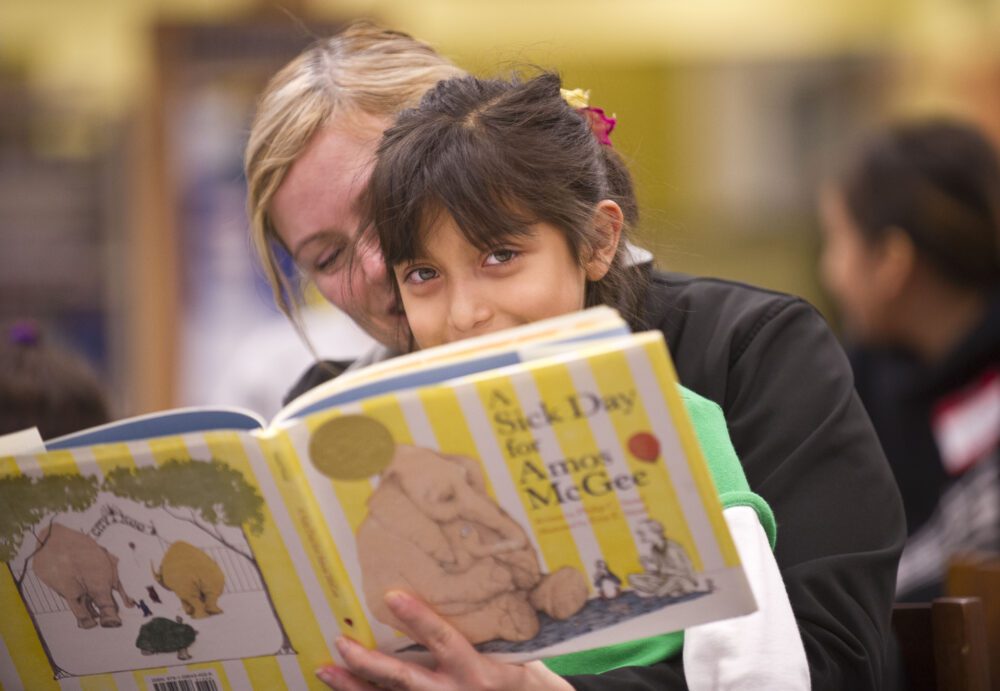What are Humanities Councils and What Do They Do?
Ever since the Department of Government Efficiency (DOGE) directed the National Endowment for the Humanities (NEH) to terminate all federal funding for humanities councils on April 3, humanities councils have received significant national and local news coverage. Humanities councils reach millions of Americans each year with their programs, grants, and digital services; however, many people hadn’t heard about this network of humanities nonprofits before this moment.
There are 56 state and jurisdictional humanities councils, one in each state, territory, and Washington, DC. Established in 1971 by Congress following the creation of NEH, their mandate is to make outstanding public humanities programming accessible to everyday Americans. Humanities councils are independent nonprofits that use federal funds—distributed through the National Endowment for the Humanities—to make sure every community in their state, no matter what their geography or resources, has access to high-quality humanities programming and grants.
Because each state and territory has unique needs, each council is, by necessity, unique as well. Humanities councils work closely with partners across their state to tailor grants and programs to their state’s specific culture and challenges. This means it can be a challenge to sum up all that humanities councils do in just a few sentences. Instead, we’re starting a new series to share examples of programs, grants, partnerships, and initiatives from around the country that showcase the many ways humanities councils have a positive impact on their states’ cultural vibrancy and economic vitality.
We hope these examples inspire you to find your humanities council and learn more about the role they play in your state or territory.
States featured in this article: Pennsylvania | Texas | Vermont | Utah | Hawaii | Illinois
If you are a journalist or producer and would like to learn more about any of these stories or be connected with humanities councils and their grantees, please contact the Federation at connect[at]statehumanities.org.
PA Humanities engages children with poetry by painting student haikus on sidewalks using paint that only appears when wet
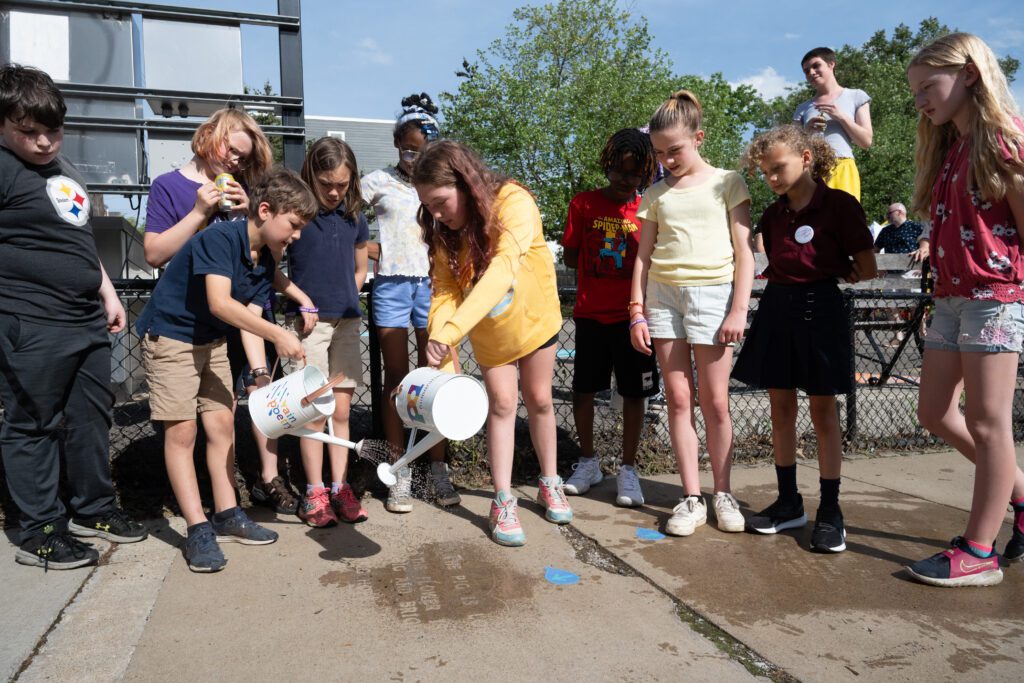
PA Humanities’ Rain Poetry program engages children from across Pennsylvania in a hands-on community poetry activity facilitated by local poets and teaching artists. This innovative project started in Philadelphia in 2023, involving elementary school students from five neighborhoods who learned about haiku and wrote their own poems. Selected haiku were installed on the ground in public spaces with a special rain-activated solution that allows the poetry to appear like magic just by adding some water!
The beauty of Rain Poetry is that young people explore their voices and express themselves through poetry while also transforming everyday spaces into opportunities to engage with the humanities and foster learning and conversation. Each installation has its own community reveal celebration, inviting families, friends and neighbors to connect and celebrate the work of young people.
Pictured are students from the Pittsburgh youth organization Assemble pouring water over the sidewalk to make their invisible poems appear like magic at the Rain Poetry reveal celebration at Nelson Mandela Peace Park in Pittsburgh’s Garfield neighborhood (in 2024).
Learn more about PA Humanities.
Humanities Texas facilitates reading and discussion programs where veterans and their families and friends can talk about war, military service, and the return to civilian life
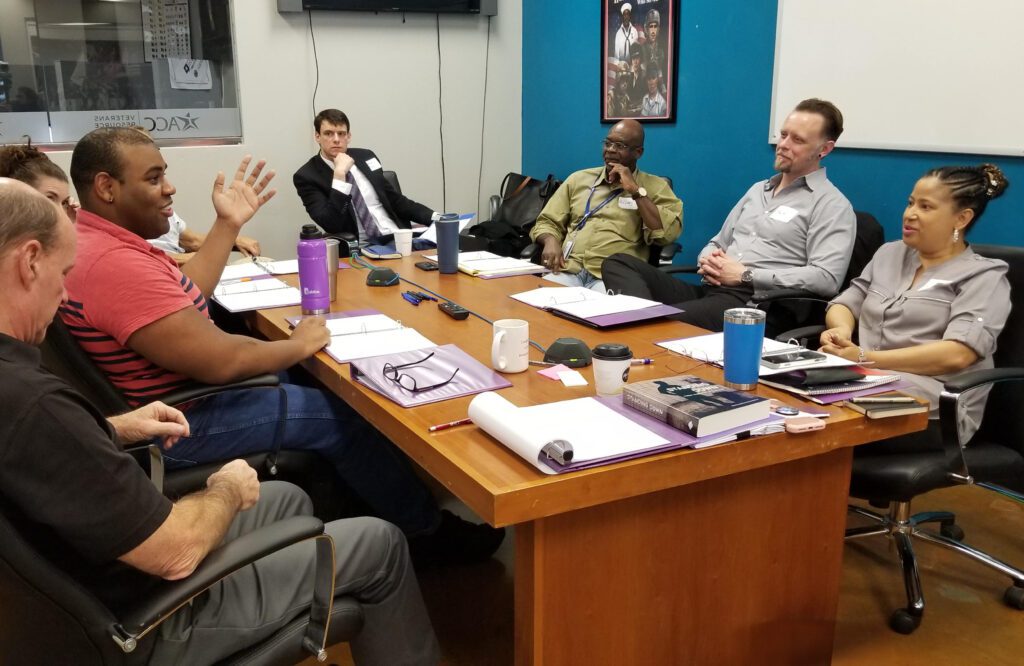
Veterans’ Voices is a Humanities Texas reading and discussion program that brings veterans, their families and friends, and other interested civilians together in small groups to read aloud from classic and contemporary literary texts about war, military service, and the return to civilian life. After the readings, participants engage in facilitated conversations that explore how the texts relate to their own experiences and allow for shared reflection on combat and civic responsibility. These events are free and open to the public. Attendees don’t have to prepare or have any prior knowledge of the material to participate.
“[Veterans’ Voices] is different than anything else I’ve ever done with vets,” said a discussion leader in College Station, Texas. “Through the discussion, all assumptions, insecurities, and misconceptions go out the window. It really levels the playing field and helps everyone to feel validated in their own veteran experience. To see a multi-combat tour special ops veteran validate the experience of a Coast Guard veteran is a very special thing and strengthens the entire community.”
Another discussion leader, this one from Denton, focused on the value of having families of vets present: “I greatly appreciated the perspectives of dependents such as spouses, children, and other family members of veterans. I have not experienced these points of view in vet-focused settings before. Including those that are peripheral to the veteran experience helped me feel closer to my own friends and family.”
More than 60% of humanities councils deliver programs that serve veterans, active-duty military, and their families. Writing workshops, documentary film screenings, and reading and discussion programs help veterans, their families, and the broader public better understand and appreciate military experiences.
Learn more about Humanities Texas.
Vermont Humanities holds poetry readings in state parks to celebrate Vermont’s natural beauty and literary legacy at the same time
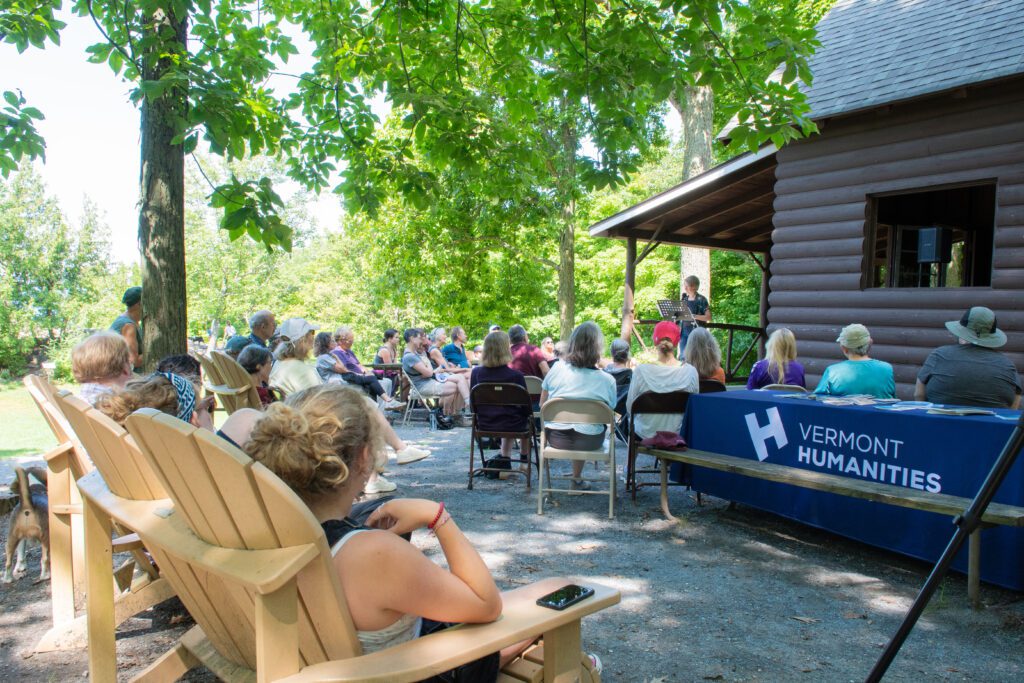
Vermont Humanities’ Words in the Woods program allows Vermonters and visitors alike to enjoy the state’s natural beauty while listening to and reading literature in the great outdoors. In 2025, they will hold five Words in the Woods events with five Vermont poets reading in person at five different Vermont State Parks. To ensure the program is accessible to all, Vermont Humanities covers park entry fees for program attendees.
Learn more about Vermont Humanities.
Utah Humanities offers free humanities college courses for “adults of modest means who dare to dream”

The Venture Course from Utah Humanities is a free, interdisciplinary humanities course offered to adults “of modest means who dare to dream.” Made possible through partnerships with Weber State University in Ogden, Westminster College in the City of South Salt Lake, and Southern Utah University in Cedar City, Venture introduces students living on low incomes to philosophy, art history, literature, American history, and critical writing/thinking. This accredited evening course, taught by college faculty, gives students new ways of thinking about their lives and their world, developing their ability to think critically and empowering them to take more control of their future. Using discussion and writing to learn and primary sources as texts, Venture uses the liberal arts to help liberate the mind.
The Venture Humanities Course is Utah’s Clemente Course. Utah Humanities is one of several humanities councils that offer these free college courses. Other participating councils include: Illinois Humanities, Oregon Humanities, and the New Jersey Council for the Humanities. Utah Humanities also offers a similar program for high school students considering college.
Learn more about Utah Humanities.
The Hawaiʻi Council for the Humanities empowers incarcerated people to share their stories and connect with others through facilitated conversations
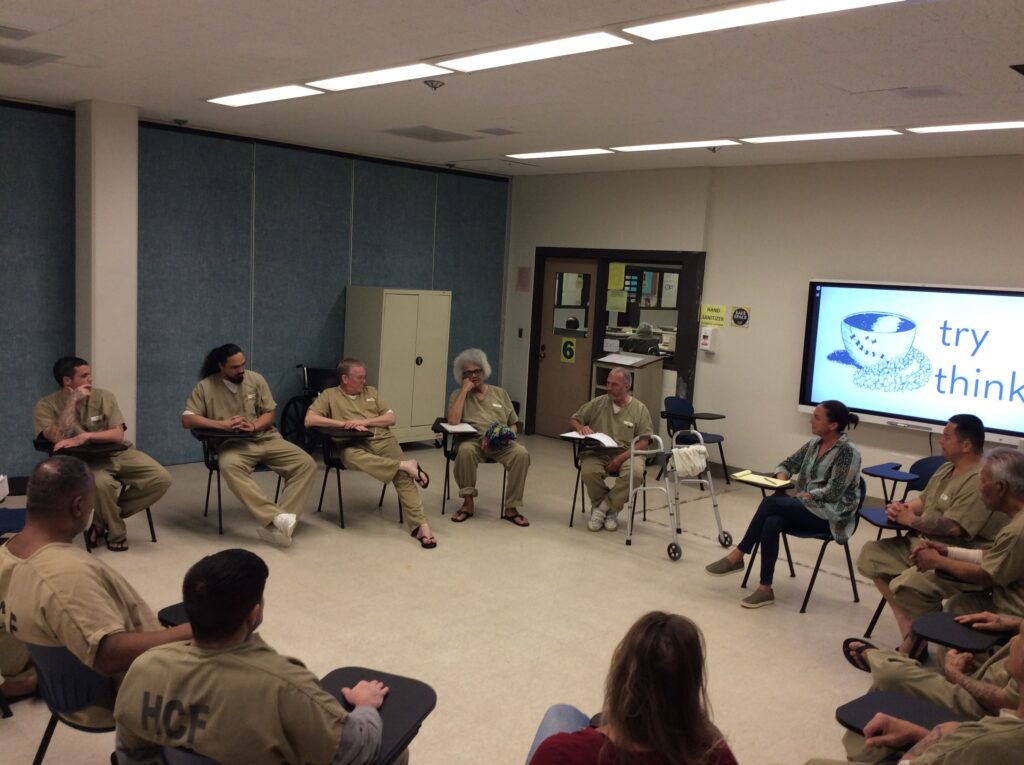
The Hawaiʻi Council for the Humanities runs Try Think, a conversation-based program that began in the Women’s Community Correctional Center in Windward Oʻahu. The Hawaiʻi Council for the Humanities created Try Think to provide a space for incarcerated people to feel safe to share their opinions and perspectives and share their stories and hopes for the communities they may be returning to someday.
This conversation program unites communities separated by literal walls and cultivates a positive, productive community spirit in spaces where this has traditionally been challenging for those who reside there. Hawaiʻi Council for the Humanities currently facilitates weekly programs at the Women’s Correctional Center, Hālawa Correctional Facility, and Waiawa Correctional Facility.
This program has been running for over 20 years. In 2024, 759 attendees and 36 community guests participated in 66 sessions at the three facilities. Hawaiʻi Council for the Humanities says Try Think is committed to taking these powerful lessons learned inside the facilities to their larger community: the importance of voice, the desire to feel heard and considered, the need to feel acknowledged as a whole person and as a valuable part of the community.
One participant at the Halawa Correctional Facility said this about their experience in Try Think: “Try Think has given me a safe place to communicate about topics that matter in society. It’s a class that teaches me how to engage with others in a positive manner.”
Several other humanities councils work with incarcerated populations to provide education and healing through the humanities, including Mississippi Humanities.
Learn more about the Hawaiʻi Council for the Humanities.
Illinois Humanities provides K-12 poets a platform to share their voice and earn recognition for their words
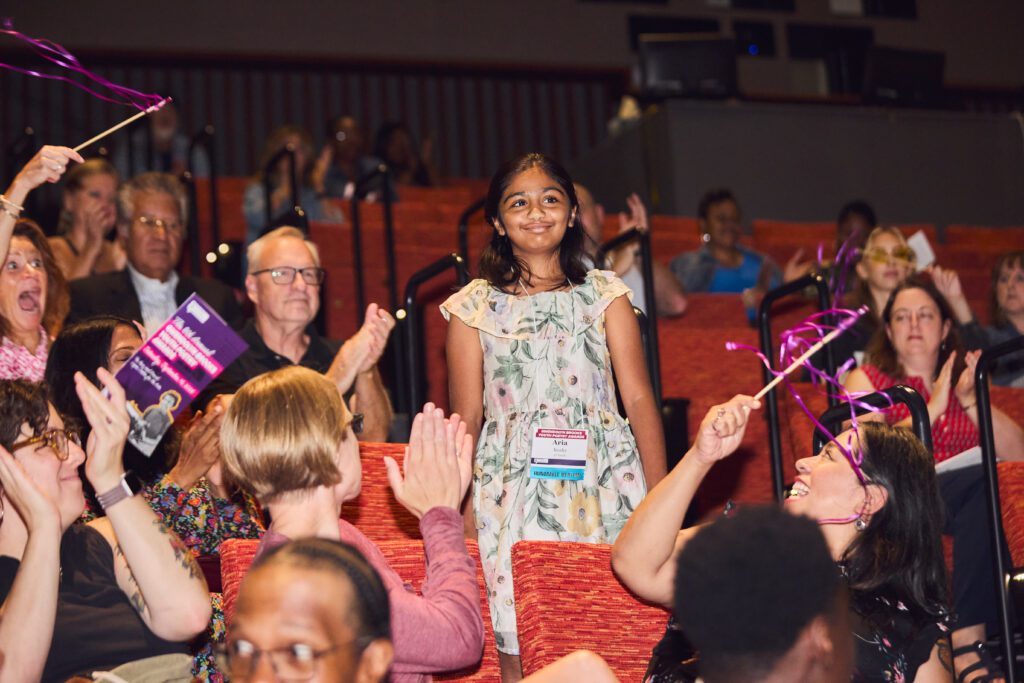
Each year, Illinois Humanities puts on the Gwendolyn Brooks Youth Poetry Awards to celebrate the creativity of K-12 writers in Illinois and provide a platform for the next generation of poets to share their voices and develop their craft. The awards honor the legacy of Illinois’ own Gwendolyn Brooks: renowned poet, author, and the first Black Pulitzer Prize winner.
The Awards are a prestigious competition in which young people in grades K-12 submit an original poem for a chance to earn a legendary prize. Two winners and one honorable mention per school grade received a monetary prize, publication in print and online, and the distinction of going down in history as a young, published poet in a tradition dating back to 1969. Winners recite their poems onstage at the awards ceremony.
Gwendolyn Brooks created the writing competition as a way to encourage young people to explore and experiment with self-expression through poetry, a legacy that Illinois Humanities says they are proud to carry on. In recent years, the number of submissions received has skyrocketed, reaching 988 in 2024; a panel of forty-nine expert judges thoughtfully examined and rated students’ poems based on a carefully crafted rubric evaluating aspects of technical skill, emotional and intellectual range, originality, and theme or message.
